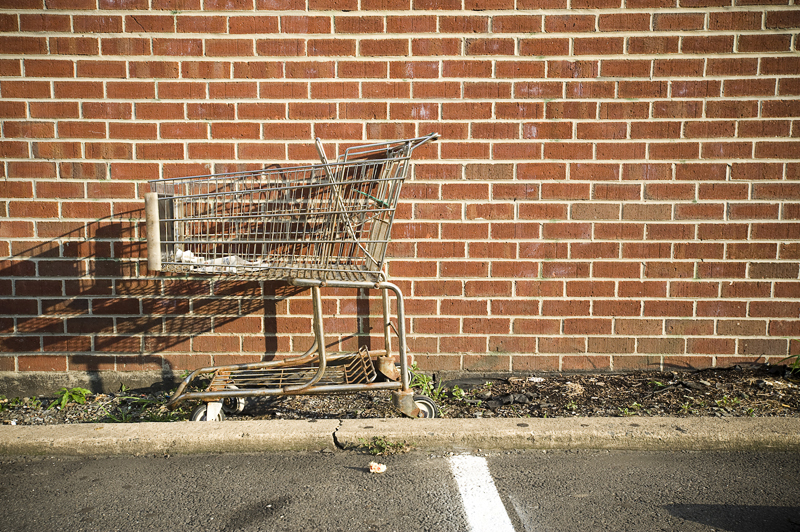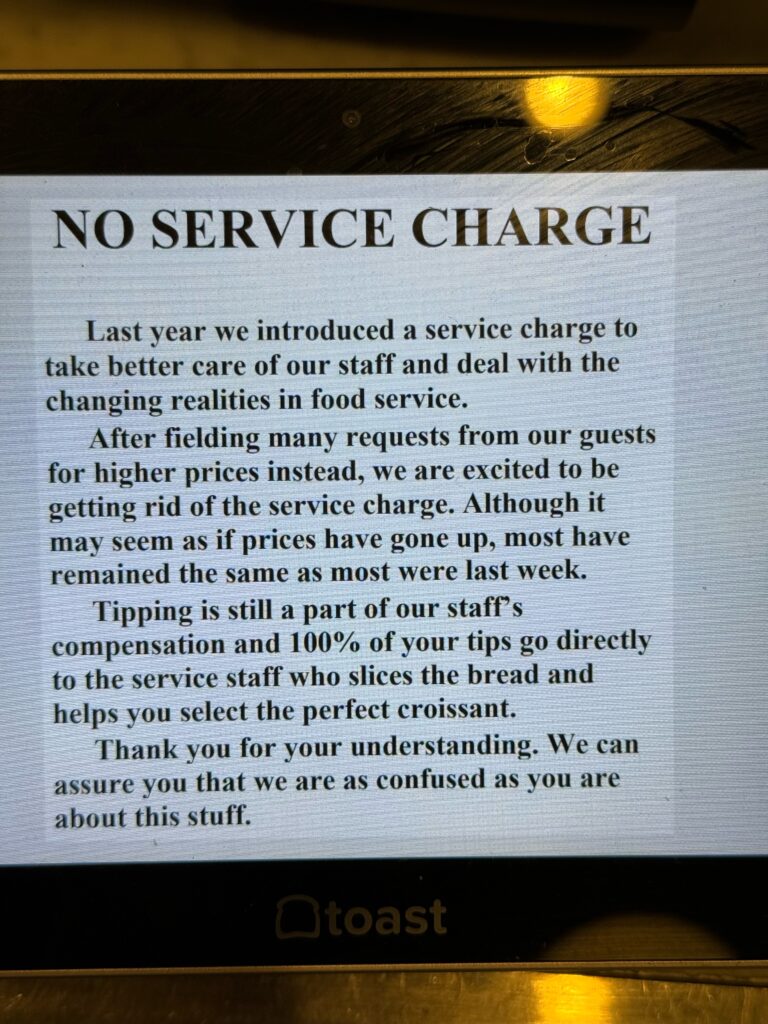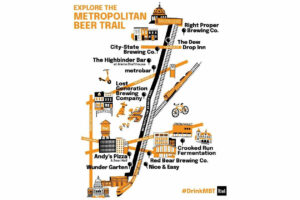
Photo by Thomas Dooley
From The Office of the Attorney General:
“Attorney General Karl A. Racine today announced a lawsuit against Instacart, a grocery delivery service, for charging District consumers millions of dollars in deceptive service fees and for failing to pay hundreds of thousands of dollars in District sales tax. The Office of the Attorney General (OAG) alleges that for a span of 18 months, Instacart failed to clearly disclose to consumers that optional service fees were added on their bills and led them to believe these fees were tips for their delivery workers. In fact, the fees were an extra revenue source for the company and did not increase workers’ pay. Additionally, OAG alleges that Instacart violated District tax law and failed to collect hundreds of thousands of dollars in sales taxes on delivery and service fees it collected. OAG is seeking restitution for consumers who paid deceptive fees, back taxes and interest on taxes owed to the District, civil penalties and costs.
“Instacart tricked District consumers into believing they were tipping grocery delivery workers when, in fact, the company was charging them extra fees and pocketing the money,” said AG Racine. “Instacart used these deceptive fees to cover its operating costs while simultaneously failing to pay D.C. sales taxes. We filed suit to force Instacart to honor its legal obligations, pay D.C. the taxes it owes, and return millions of dollars to District consumers the company deceived.”
Background
Based in San Francisco, Instacart operates a nationwide grocery delivery service. Customers place grocery orders via Instacart’s app or website and “gig economy” workers select and deliver the groceries. Instacart has operated in the District of Columbia since at least 2014, fulfilling thousands of delivery orders each week.
Upon checkout, Instacart customers are directed to a subtotal for the cost of their groceries and line items for other charges related to delivery. From September 2016 through April 2018, Instacart charged District consumers a default 10 percent “service fee” for its delivery services. To a reasonable consumer, this service fee appeared to be a tip: the amount was set as a percentage of the order total, consumers could increase or decrease the percentage or waive the amount, and there was no tip option visible at check-out. However, unlike a tip, the service fee went to Instacart and not to workers. Instacart used the revenue to cover its operating expenses.
On April 23, 2018, following media reports and contact by OAG, Instacart changed its service fee practices. However, Instacart has refused to refund consumers who were charged deceptive fees. It has also failed to collect District sales tax on the revenue it received from its service and delivery fees during the entire time it has done business in the District.
Consumer Protection Lawsuit
In its lawsuit, OAG alleges that Instacart violated the District’s Consumer Protection Procedures Act and tax law by:
- Charging District consumers millions of dollars in deceptive service fees: Prior to 2016, Instacart’s checkout screen contained an option to tip workers, set as a default 10 percent of the consumer’s subtotal for groceries that users could adjust. In 2016, Instacart swapped the tip option for a service fee, which was also set to a default 10 percent and could be adjusted, and displayed it where the tip option used to be. Consumers paid the service fee believing they were tipping workers. In reality, the service fee was a second charge–on top of a delivery fee–imposed by Instacart to cover delivery costs and operating expenses. Additionally, Instacart failed to clearly disclose that service fees were optional and that consumers could choose not to pay them.
- Misleading consumers about how service fees contributed to worker pay: When Instacart announced the new service fees, it told consumers that “100% of the variable service amount is used to pay all shoppers more consistently for each and every delivery, not just the last shopper to touch the order.” Instacart also stated that the company collected a service fee because “multiple shoppers may have been involved in a single order” and the “service fee is used to pay this entire set of shoppers.” In fact, the shoppers who fulfilled a consumer’s order were paid the same whether or not a consumer paid the service fee.
- Failing to pay at hundreds of thousands of dollars in District sales tax: Under District law, Instacart is responsible for collecting sales tax on the delivery services it provides. The entire time Instacart has operated in the District, it has failed to collect sales tax on the service fees and delivery fees it charged users.
A copy of the complaint is available at: https://oag.dc.gov/sites/default/files/2020-08/Instacart-Complaint.pdf
With this lawsuit, OAG is seeking a court order to stop Instacart from violating District law in the future, force Instacart to provide restitution to District consumers who were charged deceptive service fees, and to recover unpaid sales taxes. OAG is also seeking civil penalties for violating consumer protection law, penalties for violating tax law, interest on unpaid taxes, and costs for the investigation.
Submit a Consumer Complaint
Consumers who have been the victims of unfair or deceptive business practices can file a complaint with OAG by calling (202) 442-9828, emailing [email protected], or filling out a consumer complaint form online.”
Recent Stories

For many remote workers, a messy home is distracting.
You’re getting pulled into meetings, and your unread emails keep ticking up. But you can’t focus because pet hair tumbleweeds keep floating across the floor, your desk has a fine layer of dust and you keep your video off in meetings so no one sees the chaos behind you.
It’s no secret a dirty home is distracting and even adds stress to your life. And who has the energy to clean after work? That’s why it’s smart to enlist the help of professionals, like Well-Paid Maids.

Unlock Peace of Mind for Your Family! Join our FREE Estate Planning Webinar for Parents.
🗓️ Date: April 25, 2024
🕗 Time: 8:00 p.m.
Metropolitan Beer Trail Passport
The Metropolitan Beer Trail free passport links 11 of Washington, DC’s most popular local craft breweries and bars. Starting on April 27 – December 31, 2024, Metropolitan Beer Trail passport holders will earn 100 points when checking in at the
DC Day of Archaeology Festival
The annual DC Day of Archaeology Festival gathers archaeologists from Washington, DC, Maryland, and Virginia together to talk about our local history and heritage. Talk to archaeologists in person and learn more about archaeological science and the past of our







